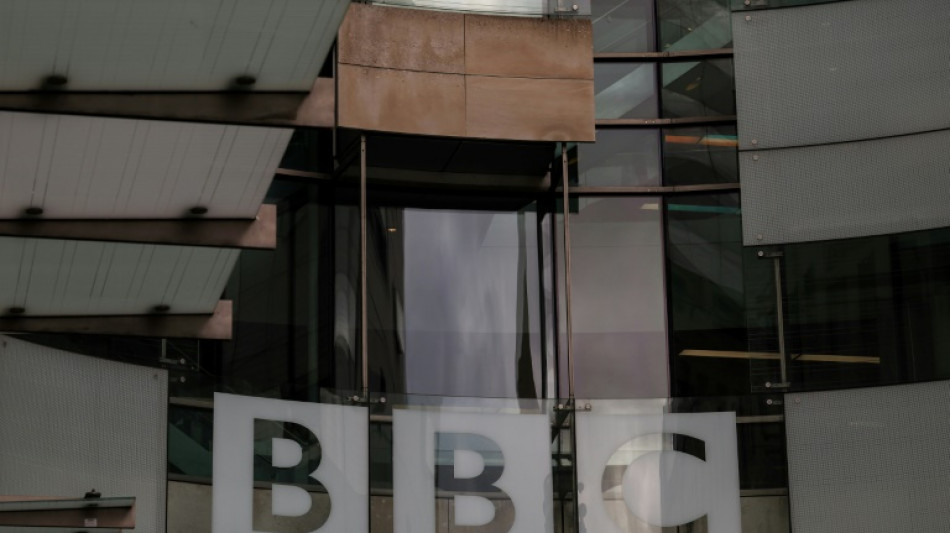
BBC says sorry to Trump, but rejects defamation claim

The BBC said Thursday that its chairman had sent a letter to US President Donald Trump apologising for a misleading edit of one of his speeches, but rejected that it was grounds for a defamation lawsuit.
The comments came after Britain's embattled public broadcaster said earlier that it was investigating a possible second instance in which a Trump speech was edited in a misleading way.
On Monday, the BBC apologised for giving the impression in a documentary aired last year that Trump had directly urged "violent action" just before the assault on the US Capitol by his supporters on January 6, 2021.
The video edit has triggered a firestorm, leading the BBC director-general and the organisation's top news executive to resign on Sunday, and drawing a threat from Trump's lawyers to sue for $1 billion.
BBC Chair Samir Shah has "sent a personal letter to the White House making clear to President Trump that he and the corporation are sorry for the edit of the president's speech", the broadcaster said in a statement.
However, it added: "While the BBC sincerely regrets the manner in which the video clip was edited, we strongly disagree there is a basis for a defamation claim."
It said BBC lawyers had written to Trump's legal team in response.
As controversy continued to swirl around the "Panorama" documentary on Trump aired in October 2024, the BBC said it was now probing another edit of Trump's speech from the day of the Capital riots.
The Telegraph newspaper said the BBC also aired another report, in June 2022 on its "Newsnight" programme, in which phrases spoken at different points in Trump's speech were edited together to make it appear as if he were urging supporters to go to the Capitol and "fight like hell".
A BBC spokesperson said: "This matter has been brought to our attention and we are now looking into it."
The editing row comes at a politically sensitive time for the BBC, which is due to renegotiate the Royal Charter that outlines the corporation's governance. Its current charter will end in 2027.
British Prime Minister Keir Starmer and his government have been performing a tightrope act, backing the broadcaster's independence while avoiding taking sides against Trump.
G.Malecki--GL

 London
London

 Manchester
Manchester
 Glasgow
Glasgow
 Dublin
Dublin
 Belfast
Belfast
 Washington
Washington
 Denver
Denver
 Atlanta
Atlanta
 Dallas
Dallas
 Houston Texas
Houston Texas
 New Orleans
New Orleans
 El Paso
El Paso
 Phoenix
Phoenix
 Los Angeles
Los Angeles



